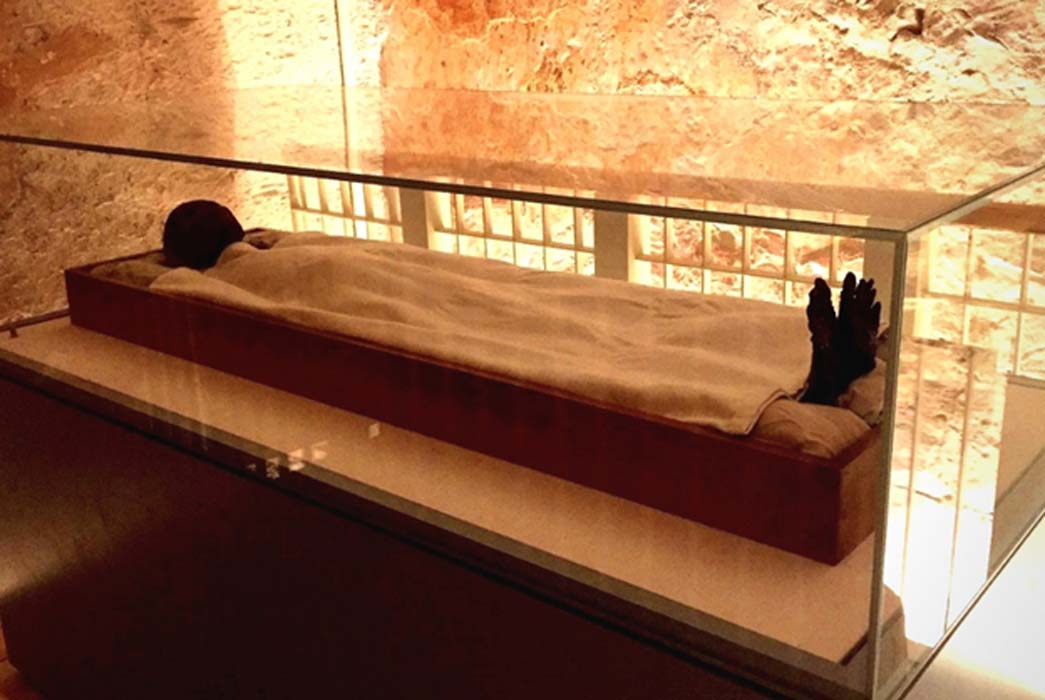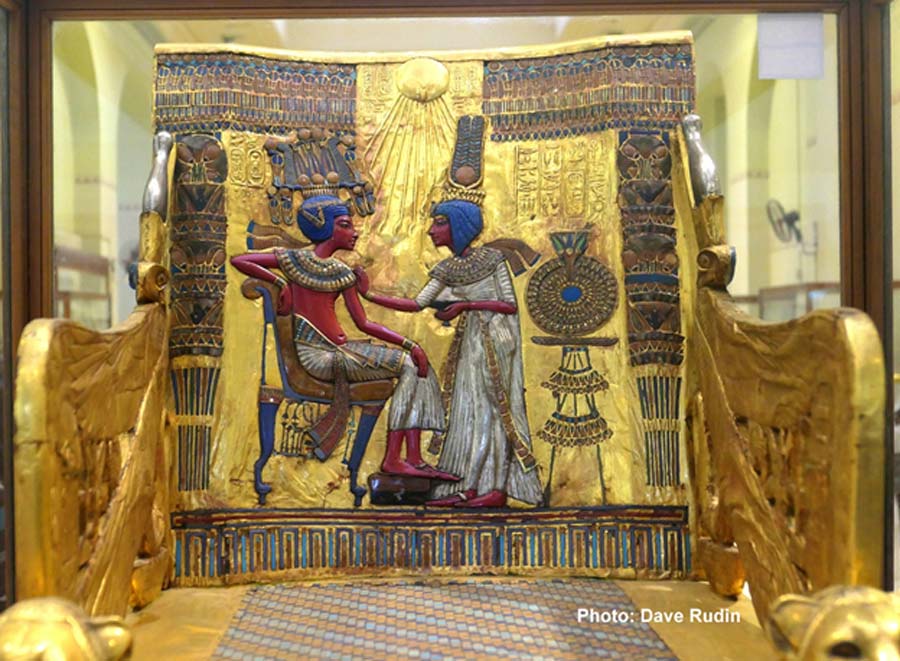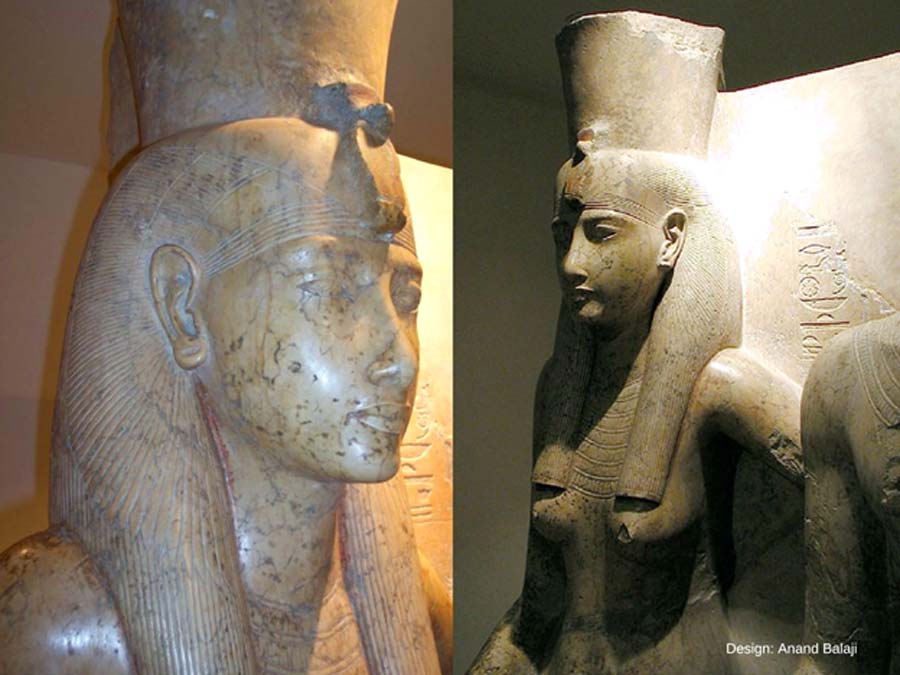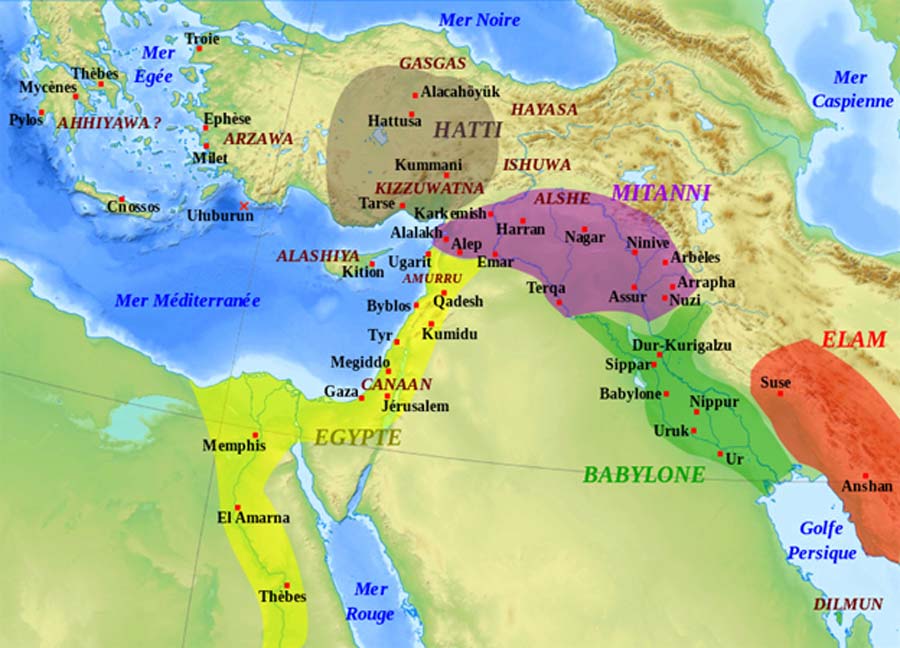
When Tutankhamun Lay in State: Did Ankhesenamun Willfully Delay Her Husband’s Burial? – Part I
The twilight years of the Amarna interlude are shrouded in mystery. We have little concrete evidence of the persons who reigned and their actions. Tossed into this confounding milieu are details of an unprecedented communication from a recently-widowed Egyptian queen to the rival Hittite king. Did Ankhesenamun, who is widely believed to have penned the plea, willfully delay Tutankhamun’s burial to use it as a bargaining chip to achieve her goal of saving Egypt and her dynasty?

The untimely death of the last ruler of the Amarna bloodline, Tutankhamun, threw the race for the Egyptian throne wide open. Old hands Aye and Horemheb fancied their chances, with the former succeeding. But before Aye became pharaoh the young widow, Ankhesenamun, made a last ditch effort to save her dynasty. Egyptian Museum, Cairo.
Dakhamunzu and Egypt in Decline
It is of crucial importance to study the Dakhamunzu episode with regard to the diplomatic relations that Egypt maintained with her neighbors during the second-half of the 14th century BC, in particular, the other major powers in Western Asia. A battle for supremacy raged between Egypt, Mitanni and the new entrant in the power-game, the Hittites under King Suppiluliuma I. Even though scholars have conducted in depth studies into the Amarna corpus which details, among other aspects, the utter neglect of international affairs by Akhenaten; we are left at the mercy of the Hittite chronicles to reconstruct events that occurred during the late-Amarna age and its immediate aftermath.

Part of a dyad, isolating the portion of goddess Mut. Dr Aidan Dodson opines that this sculpture, from the Luxor Temple statue cache, probably represents the likeness of Queen Ankhesenamun. Luxor Museum. (Jon Bodsworth/ Public Domain)
The Egyptian army attacked the Hittites whilst they battled against Mitanni in the region of Kadesh; an area that had only recently fallen to the Hittites. Enraged, Suppiluliuma I retaliated by not only besieging Mitannian forces at Carchemish, but also sent his troops to Amqu (in eastern Lebanon) an Egyptian vassal state. When the now-famous Dakhamunzu correspondence was unearthed in the ancient Hittite capital of Hattusa, historians were introduced to one of the strangest episodes in Egypt’s late 18th Dynasty. ‘The Plague Prayers’ inform us that the first letter to Suppiluliuma from the enigmatic ‘Dakhamunzu’ asking for a Hittite prince to marry was sent at this point: “[The Egyptians] were afraid. And since, in addition, their lord Nibhururiya had died, therefore the queen of Egypt, who was Dakhamunzu, sent a messenger to [Suppiluliuma].”

Map of the Middle East in the first half of the 14th century BC, during the time the Amarna letters were written. King Akhenaten’s disastrous reign had left Egypt vulnerable to rebellion and attack. (CC BY-SA 3.0)
This revealed pharaonic power play and court intrigue at work. Suppiluliuma was suitably baffled on reading the contents. ‘The Deeds of Suppiluliuma’ written by his son, Mursilli II states that the monarch was not merely surprised but also suspicious of the Egyptians’ intent. The annals report his reaction: ‘When my father learned this he called together the council of the great [and said to them]: “Never before has such a thing ever happened to me!”’




